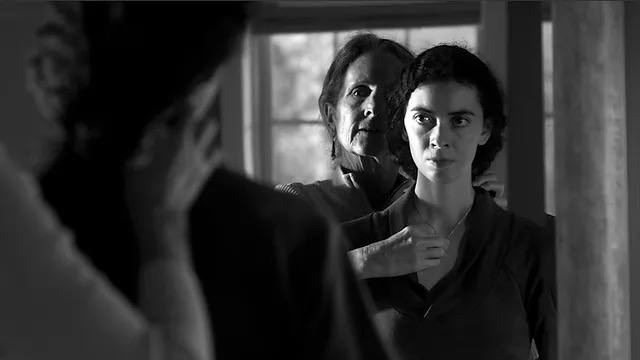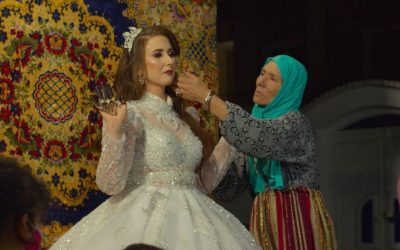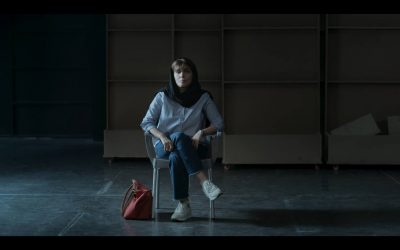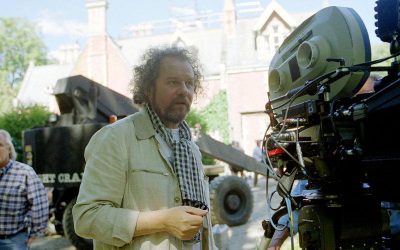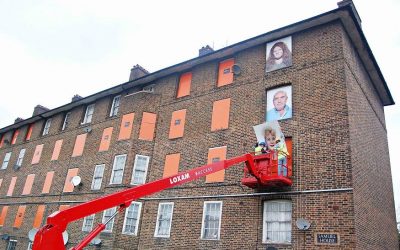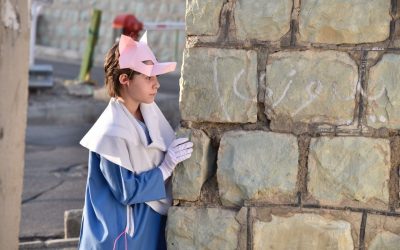Soudabeh Moradian is a director, producer, screenwriter and editor. She began her career as a filmmaker in 1996 and since then has created more than 70 documentaries, short films, TV series, and feature films. Her films are mainly based on social justice, women’s rights, and psychological impacts of war, including Doomsday Machine (2009), Story of the Land on Ashes(2001), Mahin (1999), and Polaris (2016). A number of Moradian’s movies have been showcased in several film festivals around the world and won awards, such as Hamburg (Germany), Dresden (Germany), Ebenezer (Austria), Borne (Czech Republic), Madrid (Spain), DOCSDF (Mexico), Barcelona Planet film festival (Spain), Roma Cinema Doc (Italy), Spotlight Documentary Award (USA), Sydney World Film festival (Australia), Lisbon film festival (Portugal), Document 7-human rights film festival (Scotland), and California Women film festival. Moradian’s recent narrative feature film Polaris is the culmination of 20 years’ experience as a documentarian and storyteller. It is being distributed on the art-film circuit in Canada, Europe, and the U.S. to critical acclaim with a première at TIFF BELL LIGHTBOX in Toronto in 2016. Polaris has been shown in movie theaters across Switzerland and is now streaming on Amazon Prime and other online platforms. Polaris is also one of 2020 ReFrame Stamp Recipients. Founded by Women In Film (WIF) and the Sundance Institute, the ReFrame Stamp serves as a mark of distinction to recognize standout gender-balance films and TV projects. Launched by 50 Hollywood leaders and influencers, including studio heads, agency partners, senior network executives, talent, and guild representatives, together with WIF and Sundance Institute, the ReFrame Stamp rewards outstanding works that more accurately reflect the world around us and the broad diversity of stories and creators. Soudabeh Moradian is also a film professor at Syracuse University, New York.
RedCut: Tell us about your childhood and adolescence and how you decided to become a filmmaker? What factors supported and helped you on this path?
Soudabeh: Like many aspiring filmmakers, I faced the challenge of convincing my family to support my decision to pursue a career in filmmaking, especially in the 1980s. Despite being raised in an educated family in Tehran, breaking into the film industry as a woman was considered unconventional at the time. Fortunately, we had trailblazers like Rakhshan Banietemad, whose successful and renowned films paved the way. I vividly recall watching her movie “Canary Yellow” with my father in a movie theater during my high school years. It was then that I knew I wanted to emulate her. As her name appeared across the end credits, I was captivated while others exited the theater. Her filmmaking style and the sociopolitical themes of her work deeply resonated with me, igniting a desire to use film as a platform to amplify voices and address societal issues by a woman filmmaker, yes, it’s possible. While my cinematic journey was further influenced by filmmakers like Sergei Parajanov, Theo Angelopoulos, and Krzysztof Kieślowski, Agnès Varda and many more, it was Rakhshan who remained my primary source of inspiration. Her encouragement, both directly as a friend and indirectly through her work and activism, continues to fuel my passion for filmmaking.
RedCut: As a female filmmaker, what obstacles have you faced in a patriarchal and male-dominated society, and how much impact do you believe your camera has had in advancing feminist goals?
Soudabeh: Personally, I’ve never encountered significant obstacles directly as a “female artist”. The challenges I faced in my career path in Iran mirrored those of my male counterparts, such as censorship and the struggle to obtain permits for production or screenings. I can’t recall encountering any specific issues directly related to my gender. When I mention this in interviews or casual conversations, some people become upset, assuming I’m being conservative or trying to conceal something — but I’m speaking honestly. It wasn’t until I came to the US that I began to notice gender discrimination in the film industry and unfair treatment towards female directors and other crew members. Honestly, I never thought of myself as a “woman” while making films in Iran. In fact, being a woman often helped me connect more deeply with my subjects, especially in my documentaries, as people trusted me and were more willing to open up to my camera. The struggles to approve projects or receive fair compensation were shared by my male colleagues.
While the situation in Iran may have changed since then, and there may now be a gender gap in the film industry that I’m not aware of, I’ve seen many outstanding films — both narratives and documentaries — by female filmmakers, unless they’ve been barred from filmmaking due to political circumstances. I remember receiving a lengthy list of censorship requirements for my first narrative feature film in Iran, from a governmental organization that was also supposed to finance the film. One of the points mentioned was that “the female character is too strong!” — which surprised me. This is a recurring issue in many Iranian films today; even when the film focuses on a woman, the director’s perspective often shifts to the male protagonist, unless the filmmaker herself is female. Many Iranian films and TV shows feature underdeveloped female characters or portray them without agency, even those that receive critical acclaim. It seems that when a man directs a film, consciously or unconsciously, the perspective tends to align with his patriarchal nature. Thus, even a well-written script by a woman may unintentionally become a misogynistic film in the hands of a male director. What I’m trying to convey is that discrimination in Iran’s film industry isn’t always overt or quantifiable like it is in the US; it’s often a subtle shift meant to amplify the male voice.
RedCut: How do you choose your subjects and how do you approach them? To what extent do you, as a filmmaker, intervene in controlling the story and narrative? Do you believe the camera should portray reality without judgment, or do you see it as a tool to express your own beliefs and interpretations, revealing the truth in your own way as you uncover and explore the story in front of the camera?
Soudabeh: It’s quite a complex topic that needs a long conversation, but I’ll try to provide a brief response. My subjects are drawn from my personal experiences and observations. For me, filmmaking is a therapeutic process; whether in documentaries or narrative films, I aim to address what has impacted me deeply. I initially delved into social issues, women’s struggles, and the psychological aftermath of war in projects like “Rural Women” and the trilogy of “War and Madness,” such as “Doomsday Machine.” Later, I integrated these themes into my narrative scripts, resulting in films like “Polaris,” “The Mermaid,” and “Wild Berries,” which touch on global issues such as war, immigration, misogyny, and xenophobia.
Regarding your question about controlling the story and narrative, it varies depending on the film’s structure and context. In documentary filmmaking, I’ve experimented with various approaches. At times, I aim for objectivity, adopting a “fly on the wall” approach to capture uninterrupted momentum as much as I can. Other times, I stage situations to reveal the character’s truth – as they call it.
I believe complete objectivity is a myth; the moment you decide where to place your camera, the result would be your “reality” not another filmmaker’s. So, as a documentarian, we try to be as truthful and honest as we can, not solely through form and style, but also through experience-driven methods and techniques while respecting people in front of the camera and approaching them with empathy. Sometimes, merely observing a subject over extended periods may not reveal their truth as we wish but, placing them in specific situation, such as showing them a photo, initiating a conversation, or changing their location, can unveil truths and the camera might capture some hidden magical moments of human being. We should keep in mind that all those steps must be taken with “empathy” as I said earlier, and not to forget the right of others and respecting them in every moment.
Also, must be noted that even though I used “truth” and “reality” interchangeably here, they have different definitions particularly in philosophy and documentary filmmaking, which needs a deeper conversation.
RedCut: You made narrative feature film Polaris is the culmination of 20 years’ experience as a documentarian and storyteller. You made documentary and fiction too. What was your experience making different kinds of films?
Soudabeh: To me, stories naturally motivate their own form and style. Some topics requires a documentary format to maximize impact and effectiveness, while others need to be fictionalized, leading viewers on a different journey and reaching broader audiences. I don’t favor fiction over documentary or vice versa. Currently, I’m working on both narrative features and documentaries, each employing distinct styles and formats while exploring similar themes which have always been my main focal point.
In fact, my filmmaking journey began with a “fiction” film titled “Leader of Caravan” in 1996. Despite attempts to secure funding for another fiction project, I faced budget constraints. In Iran, the “Iranian Youth Cinema Society” used to support young filmmakers with short films at the time, but the funding they offered fell short of my script’s requirements. So, I opted to make a documentary, leading to “Mahin,” the first installment of “War and Madness” trilogy. Through researching for this documentary, I delved into the psychological impacts of war – as an untold aftermath of war – and got more interested in making documentaries around that topic.
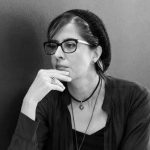
Soudabeh Moradian
Later, I was commissioned to make several documentaries here and there addressing women’s right, social issues, and PTSD both inside and outside Iran. While immersed in documentary filmmaking, I continued to develop my own scripts and made a couple hybrid TV shows for Iran as well as French/German Arte TV. Before immigration to the US, I started working on my first narrative feature film in Iran. “The Seventh Dream,” co-written with Naghmeh Samini was inspired by real characters and events from my documentaries but despite having producers and investors, bureaucratic hurdles, particularly with Ershad (Ministry of Culture), prevented me from securing necessary permits, leading to its abandonment and eventually my immigration.
During that time and effort to make The Seventh Dream, I self-financed “Doomsday Machine” (“Mashine Rooze Ghiamat”), a feature documentary on PTSD, as no organizations in Iran would support it, fearing it might undermine societal morale by portraying war heroes negatively. Over four years, with limited resources, I simultaneously shot and edited the film. Despite initial challenges in obtaining approval for screening in Iran, subsequent international screenings and airing on BBC Persian paved the way for eventual distribution in Iran, facilitated by a local distributor, several years later when I was living and working in the US — It was after moving to the US that I finally made my narrative feature film Polaris – free of any bureaucratic production hurdles yet accompanied by its own set of challenges, which is a long story!
RedCut: You have addressed global human issues, aftermath of war, women right etc in your films both documentaries and fictions. How do you see the responsibility of artists, filmmakers, and cinema in the face of atrocity?
Soudabeh: My journey in filmmaking started with a profound commitment: to serve as a voice for the oppressed and the silenced, wherever they may be enduring injustice in the world. Throughout my cinematic endeavors, I’ve sought to address these issues in diverse ways. At times, I’ve confronted them head-on, presenting the stark realities of war and its victims, as seen in “Doomsday Machine,” set within a sanatorium, or “Story of The Land of Ashes,” portraying children and women in the middle of war in Afghanistan. On other occasions, I’ve explored the aftermath, illustrating how war can devastate human being within generations, and even thousands of miles from the conflict zone, as depicted in films like “Polaris” and “The Mermaid.”
For me, filmmaking isn’t just a career; it’s my sole means of expression, the medium through which I articulate my beliefs and convictions. I believe that cinema possesses an unparalleled power. Contrary to popular perception, it’s not merely a source of pleasure or entertainment; it holds the potential to profoundly impact people’s minds and emotions, effecting meaningful change. Indeed, oftentimes, a film can resonate more deeply and meaningfully than a political statement alone, leaving an indelible mark on its audience and sparking transformative dialogue.
RedCut: How was your filmmaking experience after the immigration to the US? What obstacles or difficulties have you had as an independent filmmaker from the Middle East? — and final words
Soudabeh: When I embarked on my filmmaking journey here, I quickly realized that creative freedom is abundant – within certain limits – but the real hurdle lies in securing funds and distribution, a challenge that both circles back to money. In order to do so, my efforts started with expanding my professional network within the film industry. During my pursuit of an MFA degree at CalArts, simultaneously with making behind-the-scenes documentaries, I successfully cultivated a reliable network of collaborators. The fundraising dynamics here vastly differ from those in Iran, Europe, and elsewhere. Yet, almost everyone harbors aspirations of becoming a filmmaker, while funding remains one of the most challenging stages for projects across all budget levels, from micro films to big-budget productions.
As an Iranian filmmaker who had seldom encountered financing obstacles back home and before my immigration, I encountered a difficult barrier: persuading investors and producers to finance my projects, especially as a “Middle Eastern woman”. This marked a significant departure from my prior experiences, that’s been challenging. I have however learned invaluable lessons through this process over the past fifteen years and managed to make two feature films and several documentaries after immigration. I have spent most of my time looking for money, as opposed to making films, but I think it was worth it. Also, I have been able to share my own journey with my students through my teaching career as a film professor here in the US which has been rewarding.
I’m currently on the post-production of a narrative feature film “The Mermaid” and a documentary, essay film “My blue Sky” . Also we’re in development of my next narrative feature film “Wild Berries”. My feature documentary “Paranoia” is also in production and post at the same time. After a long gap of Covid-19, strikes and many other issues that delayed the productions over the past few days, these 4 films will be gradually distributed through different venues.

